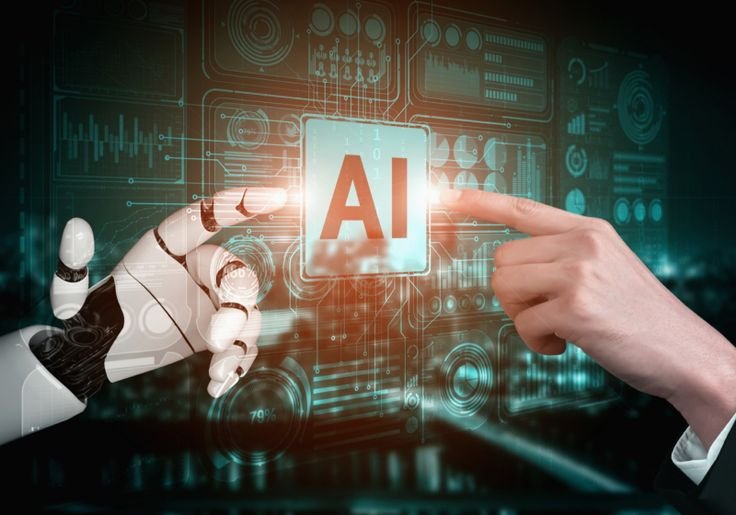Blog
AI vs Human Intelligence: Can Machines Outsmart Us?
Technology & Innovation ▪ 2025-03-06

Artificial Intelligence (AI) has advanced at an incredible pace, sparking debates about whether machines will eventually surpass human intelligence. With AI-driven automation, deep learning, and neural networks, computers can now process vast amounts of data, recognize patterns, and even make decisions. But does this mean AI can truly outthink humans? Or is human intelligence still unmatched in creativity, emotion, and adaptability?
This article explores the fundamental differences between AI and human intelligence, the capabilities and limitations of machines, and whether AI can ever fully replace human cognition.
Understanding AI and Human Intelligence
Before comparing AI and human intelligence, it is important to define each concept:
-
Artificial Intelligence (AI): AI refers to machines programmed to perform tasks that typically require human intelligence, such as problem-solving, learning, decision-making, and language processing.
-
Human Intelligence: Human intelligence is the ability to learn, reason, adapt, and apply knowledge to solve complex problems. It encompasses emotions, consciousness, self-awareness, and creativity—traits that machines lack.
While AI is designed to mimic cognitive functions, it does not possess human-like consciousness or independent thought. Instead, AI relies on algorithms, machine learning models, and vast datasets to perform tasks efficiently.
Key Differences Between AI and Human Intelligence
1. Learning and Adaptability
-
AI: AI learns through data and pattern recognition. Machine learning models improve with more data but require predefined algorithms.
-
Humans: Human intelligence is dynamic, allowing individuals to learn from experiences, emotions, and social interactions. Unlike AI, humans can adapt to unpredictable situations without extensive retraining.
2. Creativity and Innovation
-
AI: AI can generate music, art, and even write articles, but it lacks true creativity. AI-generated content is based on pre-existing patterns and cannot create something genuinely original.
-
Humans: Humans possess imagination and the ability to innovate. The greatest breakthroughs in science, art, and technology come from human ingenuity, not AI-driven processes.
3. Emotions and Consciousness
-
AI: AI can simulate emotions through chatbots and virtual assistants, but it does not experience feelings or empathy.
-
Humans: Emotions drive human decisions, relationships, and social interactions. Consciousness and self-awareness allow humans to experience joy, fear, ambition, and love—qualities that AI lacks.
4. Decision-Making
-
AI: AI makes data-driven decisions with incredible accuracy, especially in fields like finance, healthcare, and cybersecurity. However, AI lacks moral reasoning and the ability to make ethical judgments.
-
Humans: Human decision-making is influenced by intuition, emotions, and ethical considerations. Humans can think beyond data and evaluate abstract concepts like fairness and justice.
5. Problem-Solving Skills
-
AI: AI solves problems based on algorithms and existing knowledge. It excels in repetitive, data-intensive tasks.
-
Humans: Humans apply logic, critical thinking, and experience to solve problems creatively. Unlike AI, humans can navigate unfamiliar situations without prior training.
Areas Where AI Outperforms Humans
While AI cannot replicate human consciousness, it surpasses humans in several key areas:
1. Speed and Efficiency
-
AI processes large datasets in seconds, whereas humans take significantly longer.
-
AI algorithms optimize workflows and automate repetitive tasks with high precision.
2. Data Analysis and Pattern Recognition
-
AI detects patterns and trends faster than humans, making it valuable for financial forecasting, fraud detection, and medical diagnosis.
-
AI-driven analytics improve business decision-making by providing actionable insights.
3. 24/7 Availability
-
AI systems do not require rest, sleep, or breaks.
-
Businesses use AI-powered chatbots and customer service tools to provide round-the-clock support.
4. Accuracy and Reduced Human Error
-
AI minimizes human error in calculations, logistics, and automated processes.
-
AI-driven medical diagnosis reduces misdiagnoses by analyzing millions of case studies.
Can AI Replace Human Intelligence Completely?
Despite AI’s impressive advancements, there are limitations that prevent it from completely replacing human intelligence:
1. Lack of Emotional Intelligence
AI can analyze emotions but does not feel them. Human relationships, leadership, and interpersonal communication rely on empathy, which AI cannot replicate.
2. Ethical and Moral Judgments
AI follows programmed rules and cannot independently make ethical decisions. Human morality is shaped by experiences, cultural values, and emotions—factors AI lacks.
3. Creativity and Abstract Thinking
AI-generated content is based on existing data, whereas human creativity produces original ideas. Artists, writers, and inventors rely on inspiration, which AI does not experience.
4. Dependence on Data
AI requires vast amounts of data to function effectively. If data is biased or incomplete, AI’s output is flawed. Humans, on the other hand, can think critically without large datasets.
The Future of AI and Human Collaboration
Rather than replacing humans, AI is best utilized as a collaborative tool. Businesses and industries benefit from AI-human partnerships where:
-
AI handles repetitive tasks while humans focus on strategic thinking.
-
AI provides insights, and humans apply critical thinking to interpret results.
-
AI automates workflows, allowing professionals to engage in higher-level problem-solving.
Emerging Trends in AI and Human Intelligence
-
Augmented Intelligence: AI enhances human capabilities instead of replacing them.
-
AI in Creative Fields: AI assists artists and writers, but human creativity remains irreplaceable.
-
Human-in-the-Loop AI: AI systems are designed to work with humans, ensuring ethical and fair decision-making.
-
AI Regulations and Ethics: Governments and industries are implementing policies to ensure responsible AI development.

